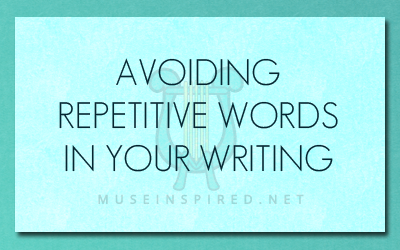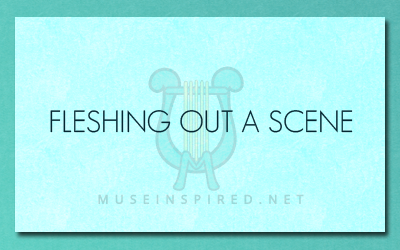 Sex scenes are hard. (Pun intended.) Many new writers balk at the idea of writing sex scenes.
It’s one reason why erotica, romance novels, and adult roleplaying remain among the most maligned genres out there. Getting people invested in reading about sex is no mean feat, because one little thing gone wrong can send them hurtling out of their immersion faster than you can say “boner”.
The truth is that lots of people screw up sex scenes. There is a literary “award” dedicated to recognizing the worst sex scenes in published fiction each year, and there is never a shortage of nominees. There are numerous sites dedicated to snarky reviews of erotic fiction. Not even the most seasoned of writers are immune from some of the pitfalls of the erotic novel.
In my opinion, this is largely because no one ever talks about it. I’m not one to let things be swept up under the rug, so let me give you a nice little list of why Bad Smut is really, really bad.
Sex scenes are hard. (Pun intended.) Many new writers balk at the idea of writing sex scenes.
It’s one reason why erotica, romance novels, and adult roleplaying remain among the most maligned genres out there. Getting people invested in reading about sex is no mean feat, because one little thing gone wrong can send them hurtling out of their immersion faster than you can say “boner”.
The truth is that lots of people screw up sex scenes. There is a literary “award” dedicated to recognizing the worst sex scenes in published fiction each year, and there is never a shortage of nominees. There are numerous sites dedicated to snarky reviews of erotic fiction. Not even the most seasoned of writers are immune from some of the pitfalls of the erotic novel.
In my opinion, this is largely because no one ever talks about it. I’m not one to let things be swept up under the rug, so let me give you a nice little list of why Bad Smut is really, really bad.

1. Silly euphemisms.
Nothing spoils a sex scene faster than a poor turn of phrase. The last thing you want to do is make your readers laugh at what is supposed to be a seriously steamy segment.Make sure you can read your own euphemisms with a straight face.
If you can’t say them aloud without laughing, your readers won’t be able to get through reading them without doing the same. Avoid elaborate, flowery descriptions of sexual organs. And let’s face it: some words or phrases are just impossible to take seriously. No one is going to get excited over your “tuna orchard”, “moist love grotto”, “instrument of delight”, or “purple-helmeted warrior of love”. (Seriously, please stop referring to male genitalia as an instrument or flute. It does not make music when you put it in your mouth. Stop, I beg you.)There are some words that no one, NO ONE, wants to see in their sex scenes.
No matter what your fetishes may be, some words just ruin the mood. A while back, I read a thread on another site where people were asked to list words they never want to see in smutty stories. Here’s a list of some of their answers (edited to remove the ones that are more a reflection of personal taste, and not counting the long, long list of horrible euphemisms):
- Damp
- Engorged
- Flaccid
- Gobble
- Juice/juicy
- Moist
- Pulsating
- Seeping
- Smear
- Succulent
- Turgid
- Weeping
Don’t wax too poetic.
Setting mood and tone is always important, and a sex scene can be many things: powerful, humbling, romantic, inspiring, beautiful. If you go too far with your metaphor and elaborate descriptions, however, you’ll stray into purple prose territory. “Purple prose” is a phrase used to describe overly lurid, extravagant writing that goes over the top and actually drags readers out of the story. (Think of the infamous line, “It was a dark and stormy night.”) Purple prose is even more of a deal-breaker when sexual scenes are involved, so tread carefully. If every other sentence is a metaphor or you’re describing sex as if it were a religious experience, chances are you might be writing purple prose. (Don’t be too clinical, either. Medical textbooks aren’t sexually thrilling, and your sex scene shouldn’t read like one.)Different people have different tastes.
Some people like it raunchy with the coarsest terms possible, and some people would rather imply what’s going on than spell anything out directly. Either end of the spectrum or anywhere in between can be written well! Just make sure that you’re not getting too repetitive with your expletives or dancing around the subject so much that you’re unintelligible. If your dictionary of profanities is lacking, take a look at this handy bracket of swear words. (Just keep in mind that some of these are inherently silly rather than sexy.) It is really hard to write when you can’t just say what you mean. If you choose not to directly refer to down there, you’ll have to think twice as much about whether or not your sentences make sense to anyone but you. Read over what you’ve written; do you stumble trying to get through it? If you hadn’t written it yourself, would you know what you were trying to say? Is it too convoluted or wordy?
2. Unrealistic dialogue.
You have to watch the words coming from your characters, as well. Dialogue is an aspect of writing that many people struggle with; it can be a struggle to make conversation flow naturally and in the voice of your characters. It’s about ten times more difficult when you have to think about what they’re saying when getting down and dirty.If it sounds like something you’d hear in a porno, don’t do it.
(Unless they’re saying it as a joke; humor during sex can be fun!) Porn dialogue is terrible. It’s unrealistic. Real people do not talk like that. If you’re writing dialogue based off of what you hear in porn, you definitely need to reconsider your sources. If you have any experience, think about what you say (or don’t) with your partners. Think about what they say to you. If you don’t have experience (or hey, even if you do), what do you WISH your partners would say to you? What do your partners tell you when you’re just talking alone together? Even just your own fantasies or love life are a better resource than porn!Be careful when writing out sounds.
Doing it now and then is fine, but too many “aaahs” and “ooohs” starts to make your sex scene into a clusterfuck of vowels. Remember that readers have to sound that out in their heads, and it might just end up awkward and weird rather than titillating. Less is more. Say that a character is moaning or groaning, and the readers’ imagination will do all the work for you. They want your smut to be sexy.No one monologues during sex.
(Or if they do, someone isn’t doing their job.) Sex involves a lot of physical exertion and moving around and breathing, and people can’t just launch into uninterrupted soliloquies when they’re busy getting busy. They have to STOP what they’re doing if they want to have lengthy conversations. Also remember that it’s slightly harder to think about saying anything sensible if you’re caught up in the moment! What both (or all) characters are doing with their bodies is going to be a distraction from whatever else is on their mind.
3. Anatomical mishaps.
This is the point at which if you’re not comfortably reading about sexual stuff, you really ought to go away. I’m not sure why you’ve read this far if that’s the way you feel, but definitely run now. Flee! There are all sorts of ways that anatomy can go horribly, horribly awry in a sex scene! You don’t need a medical degree to write erotica, but some basic understanding of the human body goes a loooong way.Speaking of length…
The average length of an erect human penis is 5-6 inches. (It’s also a different length when flaccid.) Having a character who’s larger than average, well, that’s just fine! Just be aware that pretty much EVERY male character in a sex scene EVER is also larger than average. If a survey were done of penis size in erotic fiction, I’d swear that the average size would be close to twice as long as the real figure. It is OKAY to have a guy with an average or small penis size! Some people even prefer it. Or here’s a real crazy suggestion: Maybe you don’t need to mention size in the first place. You might also want to keep in mind that vaginas are only 3 to 7 inches deep.Educate yourself about orgasms.
Another common “more is better” mistake involves sexual fluids. The typical amount of male ejaculate produced is between 2-5 milliliters. That’s a little less than a teaspoon. Vaginal discharge is usually about a teaspoon. If things are getting supersoaker-crazy in your sex scene, I am afraid that something else is going on. Remember, too, that males are are likely to feel tired and need time to recharge after orgasm. It is atypical for males past adolescence to be able to get hard again right away! Females, meanwhile, are more likely (but not necessarily) able to experience multiple orgasms. The kicker is that they also have different hotspots. Some women are not able to orgasm without external (clitoral) stimulation. Figure out what category your character falls into.The hymen is not what you think it is.
I swear, the hymen has to be the single most misunderstood part of human anatomy. I’ve seen every single form of media get it wrong, even forensic dramas. Here are a few important things you need to know about hymens:- It does not obstruct the vaginal opening. If it did, girls couldn’t have their period unless their hymen were broken. It is a bit of flimsy little membrane near the entrance that does not block anything. There is no barrier to push through, and especially no barrier several inches inside!
- Some girls are born without one. Other girls have so little of one that you can barely tell it’s there.
- Hymens are not proof of virginity, and if one is ruptured (which is less likely to happen than you might think, depending on how much tissue is there in the first place), it’s impossible to say what did it.
- Bleeding and pain during sex has little or nothing to do with a hymen and everything to do with how relaxed the woman is, how rough or not her partner treats her, and how aroused she is before penetration.
The rest of the body is important, too.
Keep track of where the arms, legs, and other extraneous bits of your character are. It’s really awkward to read a scene where one character is holding his partner from behind only to read that he’s kissing their stomach in the next post. Unless your characters are contortionists, you’ll want to avoid impossible positions and human pretzels!
4. Jumping the shark (moving too fast).
You might know that your characters are destined for one another (for the night, at least), but they don’t! We all can agree that in erotic fiction, the sex is something you’re looking forward to. If you didn’t want to write sex so badly, you’d be writing something else, right? So it’s difficult to be patient, sometimes. Unfortunately this can lead to reader whiplash and shallow scenes.If your characters have just met, they probably aren’t going to have sex immediately.
Unless they’ve hooked up for a one-night stand, fallen under the spell of a cursed lust idol, or otherwise have a plausible reason to be jumping each other’s bones right off the bat, they probably won’t! Most people do not have sex with acquaintances. Acquaintances fall into that awkward category—’twixt friend and stranger—of people who you don’t really know enough to be comfortable with and yet you have to keep seeing often enough that sex would just make things complicated. And who wants that? (Of course, there will always be characters that are dysfunctional enough to try anyway, but how likely is it that the person will be receptive? You’ll need to do a lot of establishing character personalities to make that one work, and that takes time.)You NEED to establish characters.
They need to get to know each other, but the readers need to get to know them, too! If you don’t care about the characters, why would you give a rat’s ass that they’re getting their freak on? Without interesting characterization, it’s just porn in text format. (All fine and dandy, but not what we’re here for.)It’s worth the wait.
The more you build up sexual tension, the more rewarding it will be when the characters work it out. Better yet, drawing out the story leading up to the first sex scene will give you all the more material to work with. You’ll have a better understanding of the characters, how the scene will play out, and more ideas for ways to drive them crazy. The characters will also have a better idea of how to push each other’s buttons, and think about how fun that is.
5. Insert tab A into slot B, repeat.
The only thing worse than a ridiculous sex scene is a boring one. No one is saying that you need to reinvent the Kama Sutra, but don’t fall into a pattern of writing the same thing over and over.Foreplay is fun.
There’s a lot more to sex than just the “main event”, and how people define the “main event” varies. (With a lesbian couple, there’s no penis involved, for example; are they still virgins forever when they’ve done everything else?) Mix up how far your characters go in a sex scene, or preheat the oven before you bake. It’s all good if someone gets off!Don’t be afraid to experiment a little.
Even if you’re pretty straight-laced and prefer your characters be the same, there are plenty of kinks that are considered mild—you know, the sort of thing that Cosmo suggests for couples looking to spice up their relationships. You don’t have to outfit your character in heavy BDSM wear, but how about those breakaway fuzzy handcuffs?Think about what your character likes.
Do they have any particularly sensitive spots? Secret fantasies that they’ve never told anybody about? Not-so-secret lifestyles that they actively pursue? Lights on or off? Eyes open or closed? How comfortable are they with being naked? On the same note, you should consider what they don’t like! Do they have any turn-offs or things they absolutely won’t do? Any hangups? What about things that just plain gross them out? Little details like these are great things to work into a scene.
6. All kink, all the time.
Don’t get too carried away with your wildest fantasies. Whatever floats your boat is fine, but you’re going to scare people if everything is a constant stream of escalating sexual hijinks. To quote a friend: “No normal person has THAT MANY fetishes in one body.”Don’t try to do everything at once.
Even crazy kinky fetish lifestyle people don’t cram all of their kinks into one sitting. If there’s more than one thing you want to write about, you can always have multiple sex scenes. Things will just get confusing, weird, and lose any shred of believability left if you insist on getting everything rolled up into one scene. Sex scenes are like sushi; if you try to cram too many things into the roll, it will be too much to sink your teeth into and it all falls apart when you try to swallow it.Comfort zones are there for a reason.
If your characters have never discussed an off-the-wall kink, chances are that they’re not just going to spring it on their partner without warning. That’s a good way to make things really awkward really fast if it’s not something they’re both into. (Just because YOU know it’s a shared kink, how likely would it seem to your character that their object of desire is also really into yodeling during sex?)Not everyone is an expert.
Your character might not even know what all of their kinks are, or even that those kinks exist! Sometimes these are better left to be discovered through the course of the story. Just because you start off writing the plainest of vanilla, there’s no reason it can’t work its way up to being one of the freakiest stories on the market!
7. Passive partners.
It’s not fair to your partner if you aren’t giving them back as good as they’re giving you. I’m not talking sexual roles and dominant/submissive, here; I’m talking about plain old common courtesy. This one is especially important for roleplayers or anyone with a co-author to keep in mind.“Submissive” or “bottom” does not mean you can just lay back and take it.
If you’re only reacting and not giving your partner something to work with for their posts, then you’re not being a good partner. (This is a good rule of thumb for ANY kind of roleplay, but it’s a special kind of dick move in a sex scene.) Even if their movements are restricted or you’re not setting the pace, your character can sure as hell do more than gasp and moan and sit there. Don’t be lazy! Get creative. Think about what range of motion they do have, or what they can say, or how they’re reacting other than just “yes, that right there is good”. Maybe something is not good. Maybe they have ideas for how it could be better!Why not switch it up?
Who says one character always has to be the instigator or the one in charge? The world is not divided neatly into dominant and submissive, top and bottom. Switching around which character is pinning the other to the bed can make for some interesting scenes. Hell, there’s no reason that the same person has to be “in charge” for the whole scene, even! What if one character suddenly turns the tables halfway through?
8. Sex is the great equalizer (of personality).
For some reason, as soon as the sex starts going, it seems like the characters that I’ve been reading about always exit stage left to be replaced by the same generic stunt doubles used in the last ten fanfics that I read.Characters behave differently from one another during sex.
Just as in any other situation, your character is a unique individual with unique traits and ways of seeing the world. Your shy, stuttering young squire is not likely to turn into a smooth-talking, smirky, dominating man in the sack—not unless he’s been hiding something! Keep in mind what kind of experiences they have, whether they’re prudish or fun-loving, if they’re guarded or reckless, impatient or a perfectionist, nervous or confident. It is unbelievably bizarre to see characterization go out the window in order to meet some odd specification of how Sexy Character 1 and Sexy Character 2 are supposed to behave.Emotion drives a scene.
The way your character is feeling can completely alter the mood and how a situation might play out. Your character isn’t JUST feeling “horny”, you horndogs; what else is going on in their head? What are they thinking about? How do they feel about their partner? What is their relationship like in general? What led up to the initiation of sexual activity? Is this angry sex, or slow and romantic tender loving? What about make-up sex?Don’t forget to take backstory into account.
If the character has always been afraid of sex (maybe her vindictive older sister told her horror stories about the wedding night), she’s not going to suddenly decide she’s REALLY looking forward to her first time.
9. Virgin whores.
Some people are naturally talented, it’s true, but there’s only so far natural talent can take you.Your character does not need to be a blowjob prodigy.
(For one thing, oral sex is usually a big Thumbs Up regardless.) I understand the appeal of having your character be a hidden fount of untapped sexual wonder just waiting to burst forth like a geyser upon the unwitting partner of your choice, but please resist the urge. It has been done. It has been done to death. No one is astonished anymore. I am more surprised when a virgin is NOT somehow able to charm that serpent like they were born to do so. (This goes for all varieties of magical innate sexual ability, but I swear, the magical blowjob adept is the most common.)It’s okay if your character does something wrong.
No, of course no one wants to read about awkward, unpleasant first-time sex. Fiction is all about escapism, thanks, and we all had enough of that with our own first times. On the other hand, it doesn’t have to be perfect to be a good sex scene! Let them mess up. Just do it. Let them mess up. Shh, it’s okay. I’m here.Having sex once does not turn your character into a seasoned veteran.
It takes more than one time for someone’s inhibitions to dissolve, and it certainly takes more than the first time (when they’re freaking the fuck out to varying degrees, depending on just how much sex ed they had prior) to pick up tips and tricks from their partner—assuming their partner is experienced and not a just-as-awkward-and-freaking-the-fuck-out virgin.There are degrees of virginity.
Don’t forget the other firsts, and whether or not your character has had them. Have they had oral sex before? Giving or receiving? Have they been with someone of the same sex before? If so, what about the opposite? Have they never even been kissed before? Have they ever masturbated? Did the first time scare them because they had no idea what the hell just happened and they’ve never tried since, or do they do it every day? How much do they know about the birds and the bees? Are they completely naive?
10. Bubble environments.
When you’re with the one you love, the whole world melts away… METAPHORICALLY SPEAKING, that is. Your sex scene should not feel like the rest of the story has been paused for a booty call!Location, location, location.
The environment is not a cardboard backdrop for your characters to have sex in front of, and it shouldn’t feel like you could be writing the sex scene as taking place on top of a volcano and it read just the same. It is a 3-D, fully interactive setting for you to play with. Use it! Not every bedroom scene is literally in bed… not even the ones that take place in a bedroom! There are different surfaces, amounts of space to move around in, things to bump into, obstacles to work around, and some not-so-comfortable textures to experience depending on where your characters are when the magic happens. (Remember, snow is cold. Cold and wet.)Danger can be sexy, but a novella-length sex scene kind of breaks the tension.
A desperate and hurried goodbye between lovers or a clandestine quickie is one thing, but those are brief scenes with a pace that reflects the situation. If your characters could be discovered at any moment by the assassins that are hunting them, they shouldn’t have time for a shagathon in the broom closet. For that matter, what are you characters doing having ludicrous amounts of sex in a broom closet if they’re trying to keep a low profile?There is a time and a place for sex scenes.
If putting in a sex scene right this minute will throw the story off track, don’t do it! It will only turn out forced and derail the story. Learn to be moderate. Go for a kiss instead of full-frontal action. Get back to the sexy stuff later. You can always do sexy stuff later.It’s okay to get interrupted.
Interruptions happen! While your characters are getting it on, the planet keeps on turning, and sometimes it turns right into their path to form a big old cockblock. Whether they’re interrupted by a person, an event, or remembering that they left the stove on at home, it can actually be a handy way to draw out sexual tension and keep the story from being bogged down by premature or overly-abundant sex scenes. Just don’t overdo it; no one is THAT unlucky!Now, if you’re hitting some (or all) of the items on this list, don’t despair! We’ve all been there. I’ve been there. I first wrote smut in 2007, and it was absolute shit. I’m still not always confident that my sexy scenes are hitting the right note, even now. Sex scenes are hard. Personal preferences play into them more so than with any other sort of fiction, and some stories are never going to be everyone’s cup of tea. Just because something is niche, however, doesn’t mean that it can’t be appreciated as fundamentally well-written. Admittedly, too, different people have different reasons for writing sex scenes. For me, it’s a way of driving character development and showing sides of them that otherwise wouldn’t be brought to light; for other people, well, maybe they just want to write some good ol’ porn. Whatever your motivation may be, the techniques that you use to present your scene will make it or break it for your readers.

